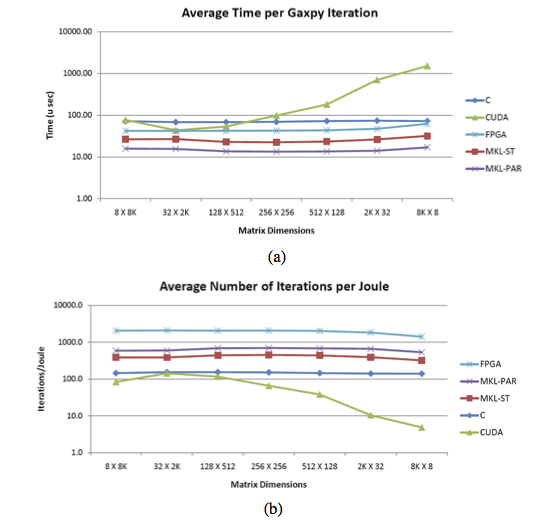FPGA or Field-Programmable Gate Array is the latest addition to crazy world of HPC. It is an an integrated circuit designed to be configured by a customer or a designer after manufacturing. The FPGA configuration is generally specified using a hardware description language (HDL). However, several vendors are now offering OpenCL based API. The idea that you have custom hardware for a specific algorithm, for example, Fast Fourier Transform or Markov Chain Monte Carlo is breathtaking.
MCMC
I am seeing more and more papers on this approach recently. For example, take this paper by Mingas & Bouganis. They report 1000X speedup for a Parallel Tempering Algorithm. They have implemented the code in VHDL on a Virtex-6 FPGA. Here is a plot from the paper

The code however is not public yet.
BLAS
Another interesting paper was on a BLAS implementation on FPGA by Kestur, Davis and Williams. Their conclusion is extremely interesting: “Results show that FPGAs offer comparable performance as well as 2.7 to 293 times better energy efficiency for the test cases that we implemented on all three platforms.”. Here is a plot from their paper
